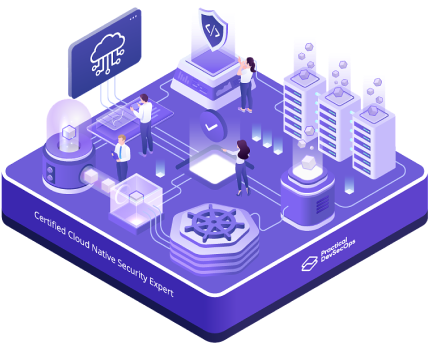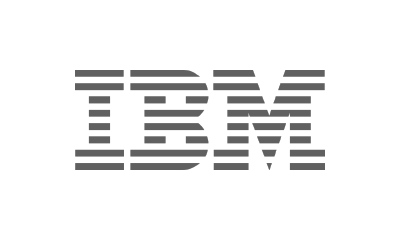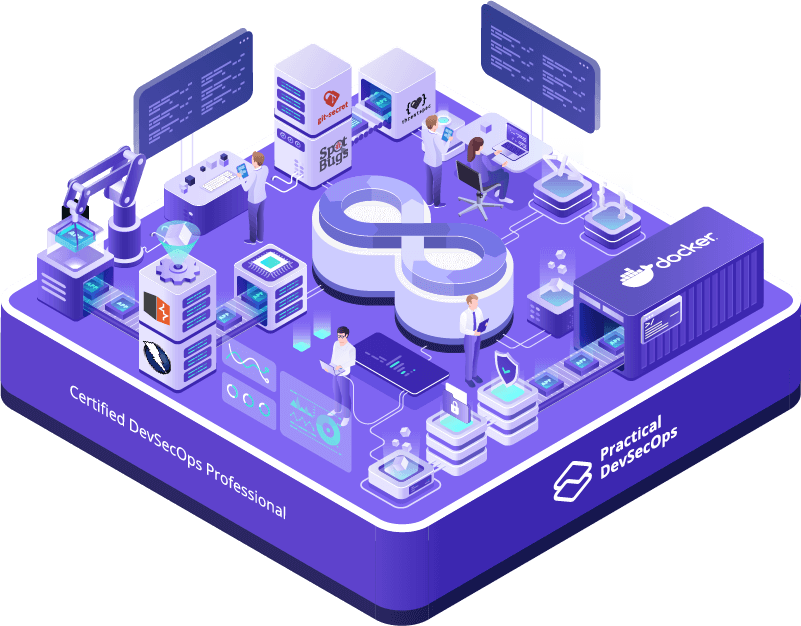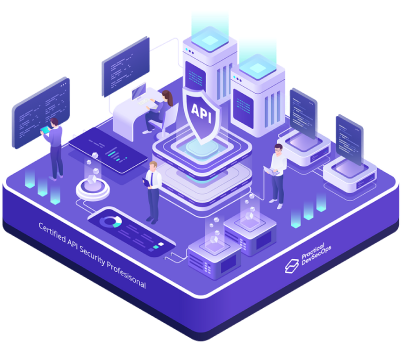Practical DevSecOps Training and Certification
Join 5,000+ Security Experts and Developers in Learning DevSecOps Skills
640+ Labs
Hands-on labs to learn every aspect of product security.
110k+ hours of lab served
24×7 access to the labs within your browser.
5000+ Certified
Join professionals from 86+ countries across 6 continents
Well structured and intense course

Training and Certification
Take your career to new heights by learning the latest in DevSecOps Training with the help of the “Most comprehensive DevSecOps course on the planet” and demonstrate your expertise to the organisations.
In Practical DevSecOps Online Training, you will learn how to handle security at scale using DevSecOps best practices.
Our DevSecOps Certification gives you an actual real-world implementation proficiency of DevSecOps concepts by giving participants task-based knowledge rather than theory.


Dedicated Virtual Labs
No more spending weeks and months to configure a DevOps environment, Our labs provide a full working DevSecOps environment for you to practice and hone your skills. Each Student has their own environment with full administrative access so you can practice/secure all the components in the pipeline.
Open source projects
We not only fund community projects like DevSecOps Studio but also share various tools and techniques created for security practitioners. You can explore these projects at practical-DevSecOps.com.


Education is in Our Blood
Hands-on Courses
Practical in nature with 100+ guided hands-on exercises in our state of the art online labs.

CCNSE
Certified Cloud-Native Security Expert
The Cloud-Native Security Expert course is our most sought-after DevSecOps…
24hr 30m Lectures • Hands-on labs
Join the Revolution






